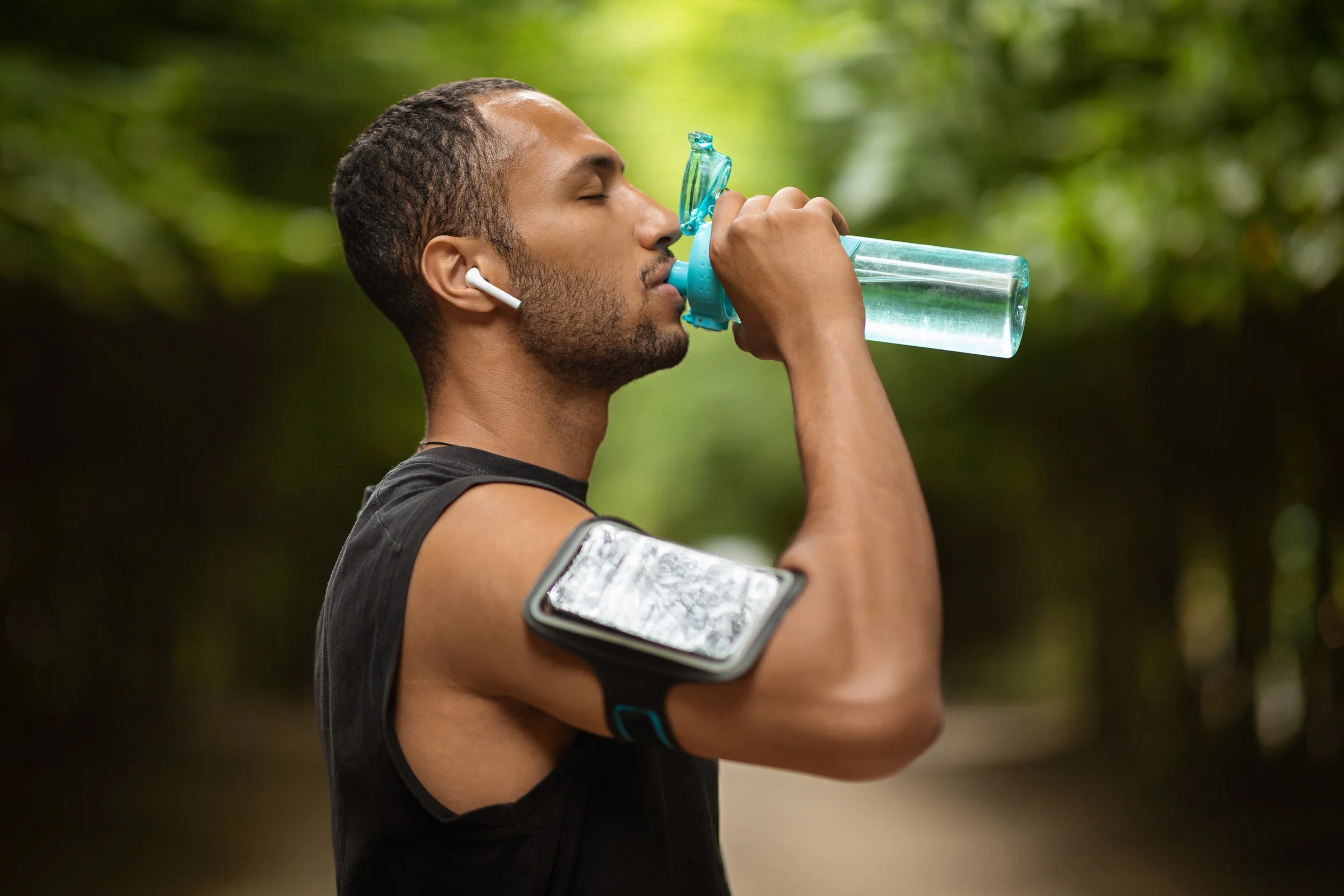Electrolytes: The Unsung Heroes of Hydration and Performance
By: Alix Landman, MPH, RD, LD
Hydration is more than just water when it comes to staying energized and focused during physical activity—it's also about electrolytes. These tiny charged particles are significant in keeping your body functioning at its best, especially during long or intense workouts or time spent outdoors in the heat.
What Are Electrolytes?
Electrolytes are positively and negatively charged ions—like sodium, chloride, potassium, magnesium, and calcium—found in bodily fluids. They help regulate cellular hydration, body temperature, muscle contractions, and nerve function. Sodium is the primary electrolyte lost in sweat and, therefore, essential to replenish. When you sweat a lot and only drink plain water, your sodium levels can become too diluted. This can cause fatigue, dizziness, and in extreme cases, even lead to serious medical issues like hyponatremia, a dangerous drop in blood sodium.
Spotting Dehydration Early
Signs that your electrolyte levels may drop include increasing fatigue, cramping, muscle weakness, dizziness, or feeling like you've lost your edge or energy during activity. In some cases, people even experience heart palpitations or feel faint. If you notice these signs after an hour or more of activity, it's time to reassess your hydration strategy.
What Makes Hydration Harder?
Certain habits can make staying hydrated more difficult. Drinking more than four cups of coffee daily, consuming alcohol (especially before or during activity), and eating processed or high-sodium foods can all contribute to fluid imbalances. Even nutritious choices, such as a protein-rich eating pattern or regularly including vegetables like asparagus and artichokes, may slightly raise your fluid needs due to their mild diuretic effects.
On a typical day, most people lose 1–3 quarts of fluid through urine, sweat, and even breathing. During extended activity, that loss can double or triple; each pound of body weight lost during exercise represents about 16 ounces of fluid lost.
How Much Fluid Do You Need?
To estimate your baseline fluid needs, divide your body weight in half. For example, a 150-lb. person would need about 75 fl oz, or 8.4 cups, daily.
In hot and humid conditions or during extended activity, multiply your weight by 0.66 to estimate how much additional fluid you'll need. For a 150-lb. person, that's an extra 99 fl oz—over 12 cups of fluid!
Sports nutritionists often recommend sipping 4–5 ounces every 15–20 minutes during intense or long-duration activity. And remember: if you notice "sweat rings" on your clothing, you're likely losing significant amounts of sodium and chloride.
If you're prone to muscle cramps, consider whether your diet includes enough potassium and magnesium-rich foods. Beans, nuts, bananas, leafy greens, and seeds are excellent sources of potassium and magnesium, which help support muscle function and hydration.
Bottom line: Stay ahead of dehydration with a plan that includes fluids, electrolytes, and real food. Your energy, focus, and recovery will thank you.

